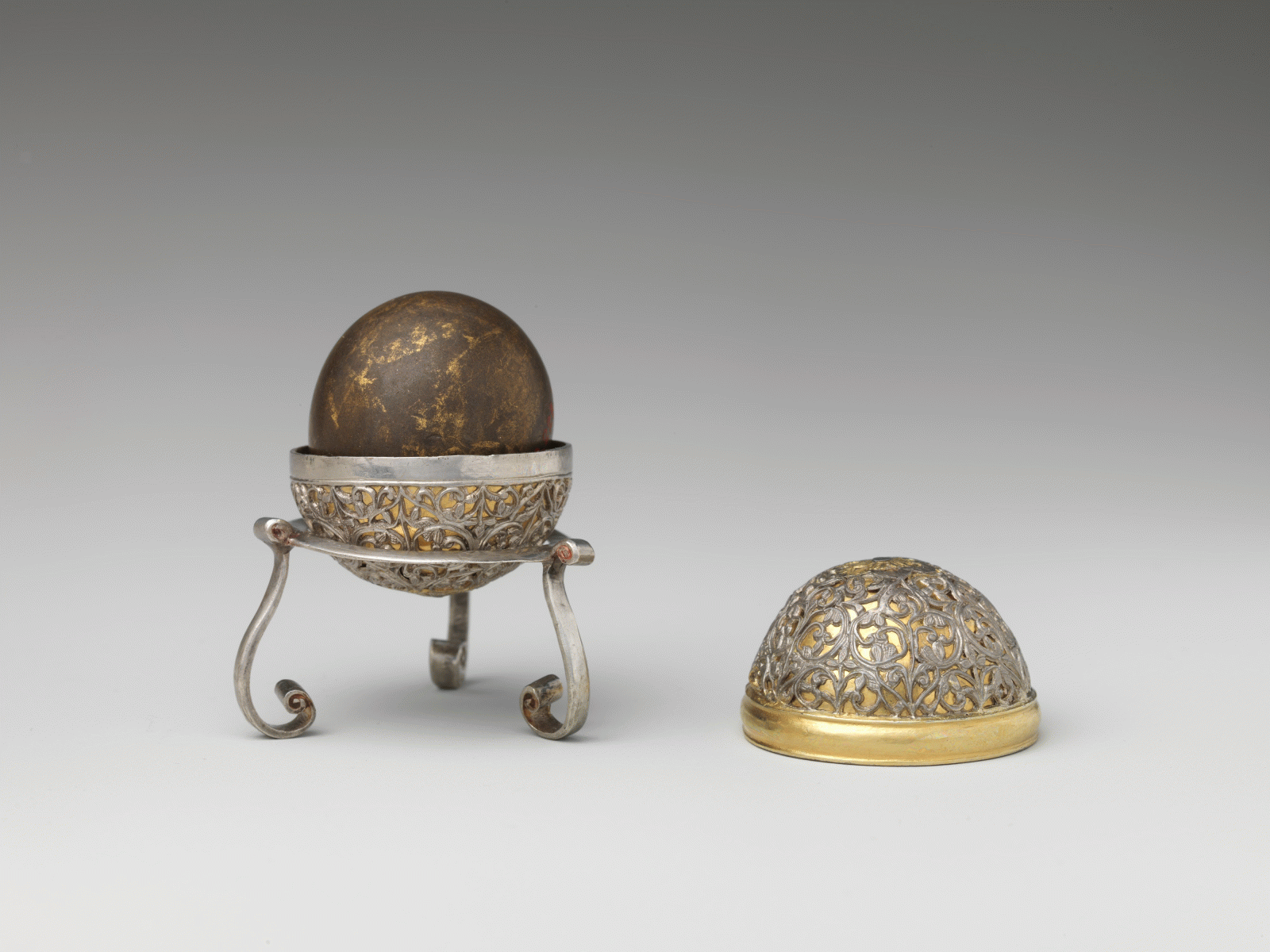Workshop
Global Early Modern Art in Eight Objects

Bezoar Stone with Case and Stand, 17th century. Metropolitan Museum of Art
Globality has remarkably dominated art historical discourse and practice in the past two decades. Within early modern studies, the global turn has highlighted the possibility of and the need for broader, more connected histories. This push has provided us with a range of multivalent conceptual tools, such as mobility, connectivity, entanglement and interconnectedness. Departing from a single object, each of us in this workshop will ask questions about the promising potential and the limitations of globalizing perspectives, and suggest how this line of research may move forward. How global is early modern art? How global are our histories of early modern art? What are the ethical and methodological issues ingrained in our stories of connections and encounters? As art historians how do we grapple with tensions between universalism and cultural relativism? How can we strike a balance between local and global expressions of materials, space and lived experience? In this moment of walls, covid and new wars, we will also consider what lessons art historians can draw from the forms of domination, oppression and conflict inherent in early globalization.
With the participation of:
Daniela Bleichmar (University of Southern California)
Sinem Casale (Kunsthistorisches Institut in Florenz – Max-Planck-Institut)
Surekha Davies (Utrecht University)
Kristina Kleutghen (Washington University in St. Louis)
Lihong Liu (University of Michigan)
Sugata Ray (University of California, Berkeley)
Yael Rice (Amherst College)
Claudia Swan (Washington University in St. Louis)
28. Juni 2022, 18:00 Uhr
This event will take place online.
If you are interested in taking part in the workshop please email Sinem Casale: sinem.casale@khi.fi.it
Hinweis
Diese Veranstaltung wird durch Fotografien und/oder Videoaufnahmen dokumentiert. Falls es nicht Ihre Zustimmung findet, dass das Kunsthistorische Institut in Florenz Aufnahmen, auf denen Sie erkennbar abgebildet sein könnten, für die Veranstaltungsdokumentation und Öffentlichkeitsarbeit (z.B. Social Media) verwendet, bitten wir um eine entsprechende Rückmeldung.


